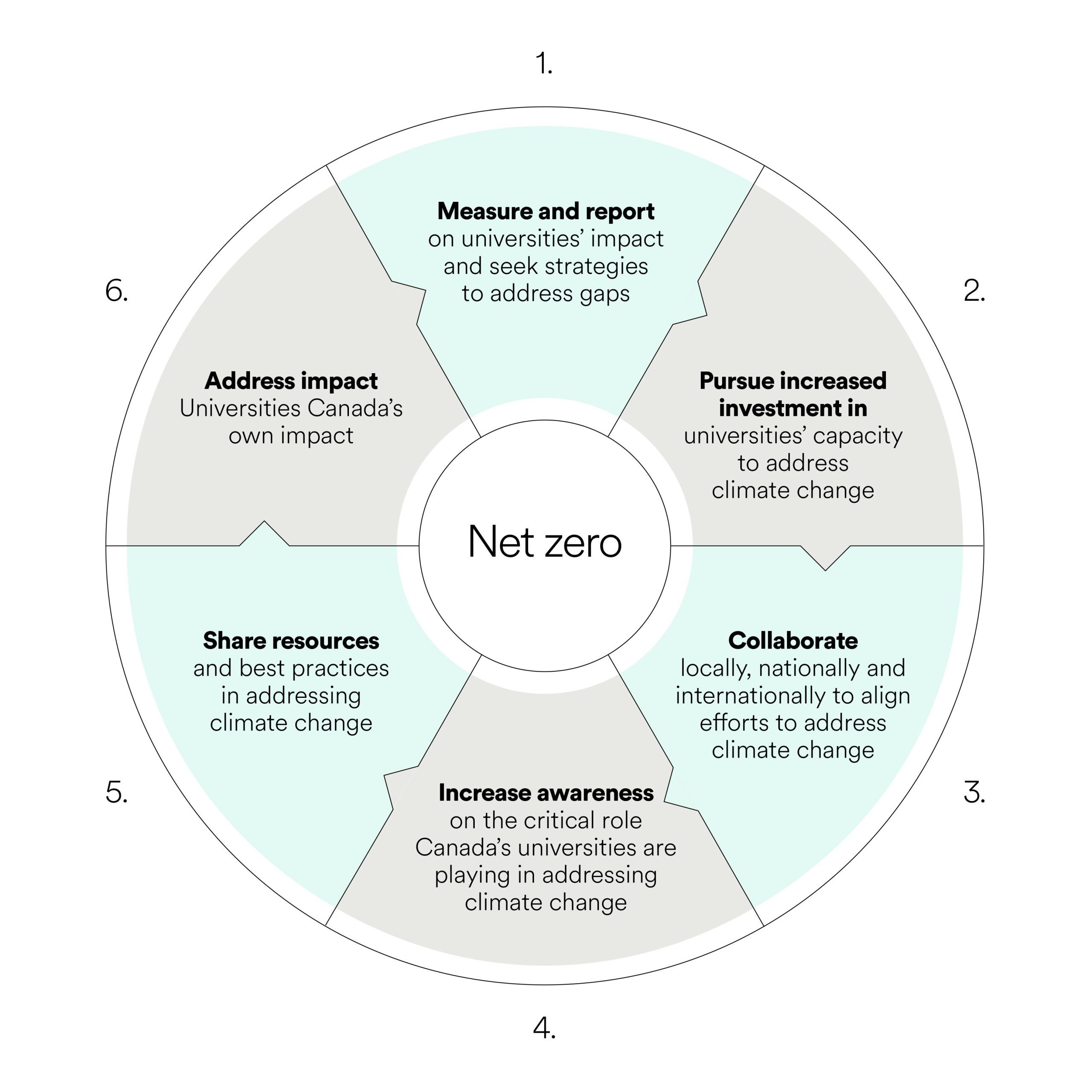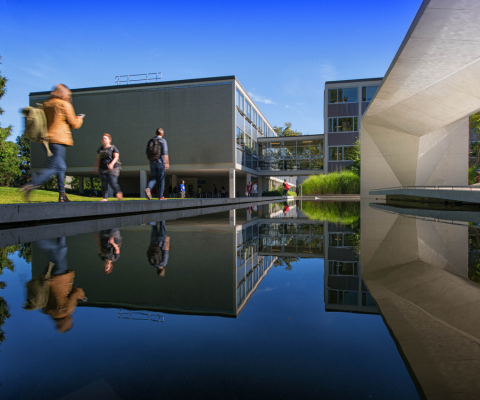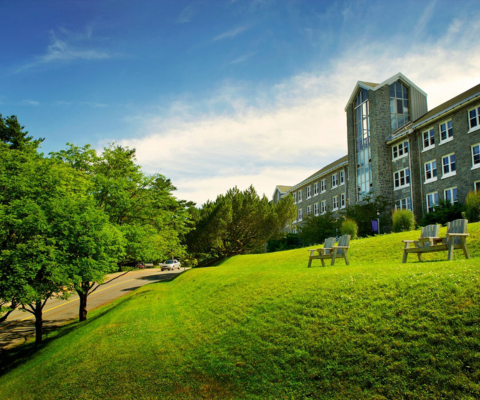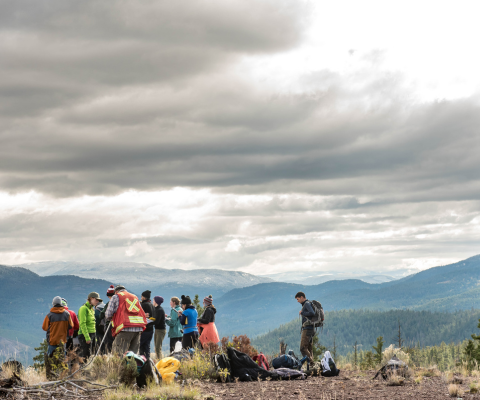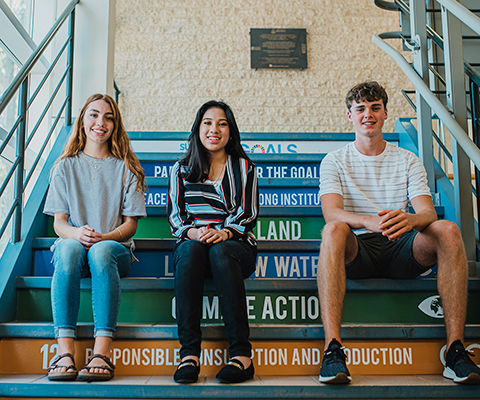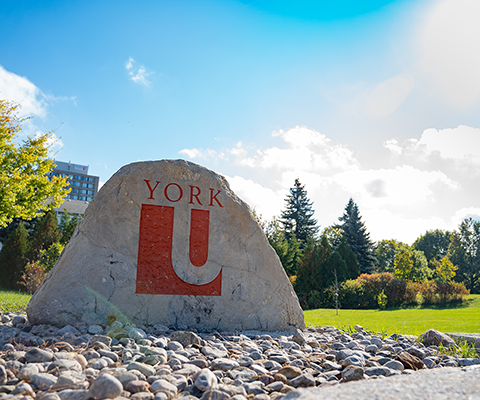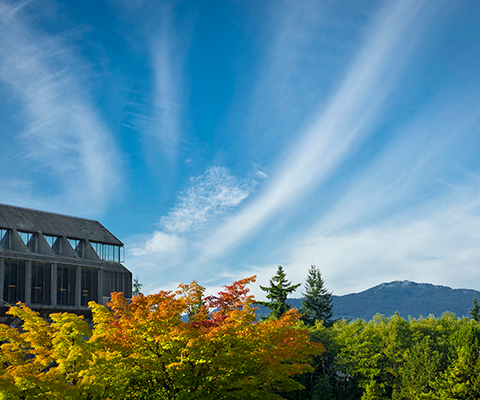Action for net zero
Canada’s universities are longstanding leaders in sustainability. They are reducing their emissions, conducting critical climate research, equipping students with green skills, and partnering with their communities to address the challenges posed by climate change.
Through Canada’s universities action for net zero initiative, Universities Canada is working with its members to measure and track the sector’s climate progress over time, serve as a hub for sharing best practices, advocate for the supports the sector needs to meet its targets and continue to address climate change more broadly, and collaborate locally, nationally, and internationally to align efforts and deepen our impact.
By the numbers
-
76%have sustainability strategies
Over 75% of Universities Canada members have dedicated sustainability strategies.
-
328programs of study
328 dedicated sustainability and climate-focused programs of study are offered at 51 universities across Canada.
-
70research centres and institutes
Over 70 climate-related research centres and institutes are spread across the country.
What universities are doing
-
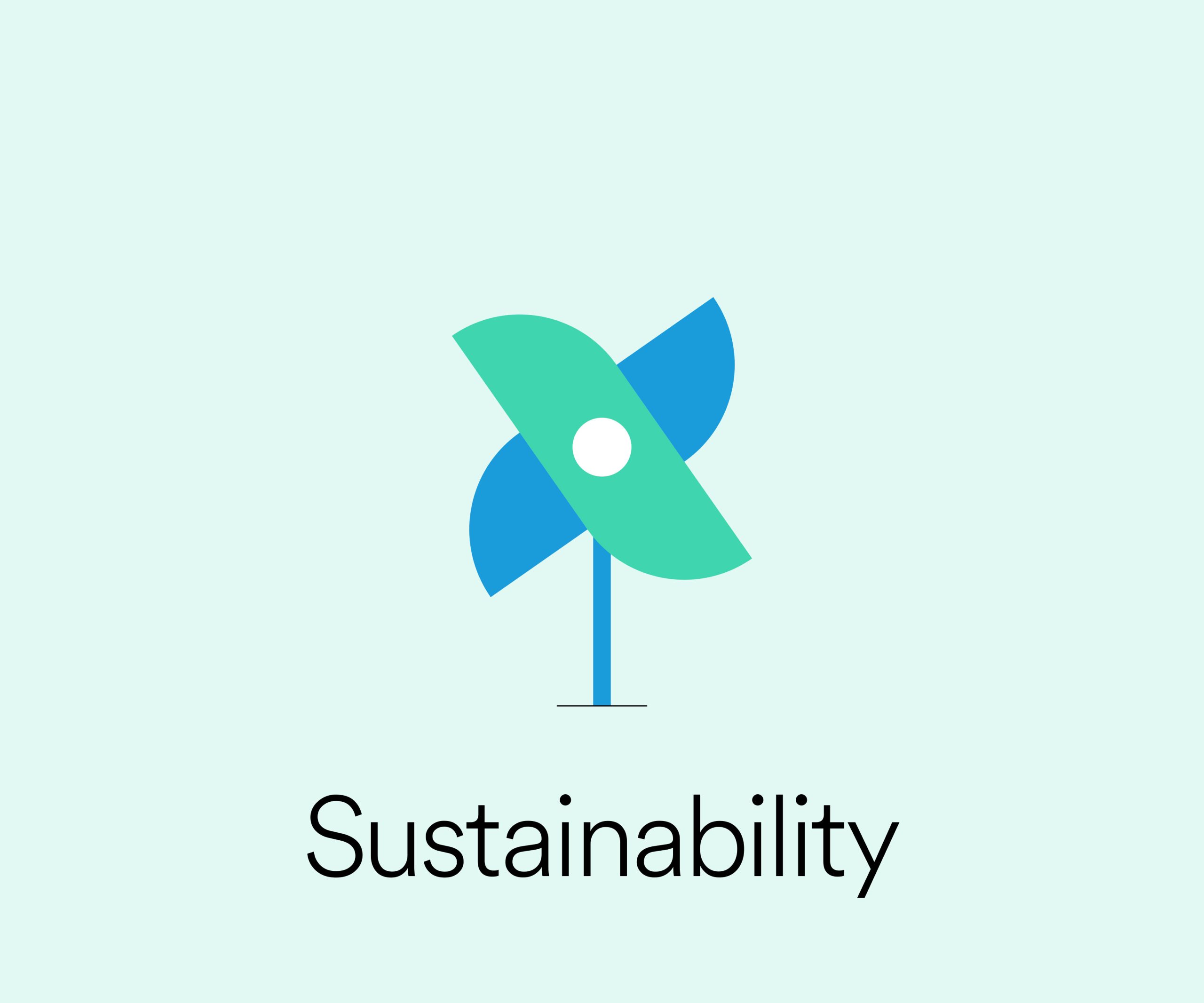 Sustainability
SustainabilityUniversities are working to lower their carbon footprint through sustainable initiatives and promoting environmental awareness.
Read member examples
Sustainability
Mount Saint Vincent University
The Mount’s Facility Improvement Project (FIP) focuses on three main areas: Sustainability, Energy Efficiency and Deferred Maintenance. Through approximately 40 projects, the university aims to reduce its carbon footprint and better serve the Mount community. These initiatives have led to significant savings of over 20% compared to previous years. Key projects include the conversion of the central heating plant to natural gas, lighting retrofit to more energy-efficient fixtures, installation of low-flow toilets for water conservation, energy-efficient windows, intelligent building automation systems and heat-reclaiming air handling units. Additionally, roofing improvements, replacement of old computers and monitors with energy-efficient models, ventilation system enhancements and the use of a direct digital system for water-cooled condensing units have further contributed to sustainability efforts. These comprehensive measures demonstrate the universities’ commitment to sustainability, energy efficiency and maintenance.University of Toronto
The University of Toronto is working to offset emissions from university-funded air travel by ensuring every kilometer flown supports sustainability projects across its three campuses. The university has enacted a mandatory carbon offset fee based on distance travelled for all university-funded air travel. Rather than outsourcing responsibility to a third party, the money from these offsets will instead be invested into projects that lower campus emissions and provide other sustainability benefits.Université de Sherbrooke
In 2023, the Université de Sherbrooke ranked first in the international STARS program, a system that rates higher education institutions’ sustainable development performance. With an overall score of 92.73 points, it has become the first university in the world to earn over 90 points thanks to its achievement of carbon neutrality in June 2022 and its work on biodiversity protection, student engagement, procurement and responsible investment.Concordia University
Concordia University’s Office of Sustainability, in collaboration with stream coordinators and relevant stakeholders, has developed a public online dashboard to provide the community with an annual snapshot of the university’s progress in five priority areas: Sustainable Food Systems, Zero Waste, Climate Action, Sustainability in Research and Sustainability in Curriculum. The dashboard also serves as internal system for tracking of the targets and key performance indicators set out in its Sustainability Action Plan. This approach enables the university increase transparency and accountability, celebrate progress and look to the future as an opportunity to address areas for improvement.Memorial University of Newfoundland
Memorial University has launched a project funded by the federal and provincial governments to reduce greenhouse gas emissions and the university’s carbon footprint in hopes of minimizing the university’s environmental effect. The University will transition from fuel-fired steam boilers to electric-powered steam boilers. Buildings will be converted from predominantly oil-fueled heating systems to systems primarily powered by renewable energy from the province’s vastly regenerative hydroelectric grid. The benefits of electrifying boilers include an estimated reduction in fuel usage of 80-85 percent and an emissions reduction of nearly 30,000 tons. This initiative will allow the institution to better forecast future energy costs and investigate the environmental benefits of using green energy.Saint Mary’s University
Saint Mary’s Atrium is designed with green in mind. The building was constructed to strict LEED standards and its signature three-storey living wall is a natural air filter – the first of its kind in Atlantic Canada. Its green roof serves as an energy regulator, improving heat lost in the winter and cool the roof in the summer. This experimental technology reduces the consumption of energy, creates a natural habitat from otherwise unused space and offers Saint Mary’s researchers a unique opportunity to investigate green roof design, measure performance and support research on optimizing crop plants for biofuel feedstocks.Toronto Metropolitan University
To measure and reduce its carbon footprint, TMU has completed a greenhouse gas emissions inventory and monitors scope 1, 2 and 3 emissions on its campus. It has created a Climate and Energy Working Group, led by students and faculty, to establish communal GHG emission reduction targets and plan recommendations to help TMU meet them. In addition, the university has joined the City of Toronto’s Green Will Initiative which brings together building owners across the city to accelerate GHG emission reductions help the city reach net-zero. TMU is working with the city to develop a Pathway to Net Zero Plan.
-
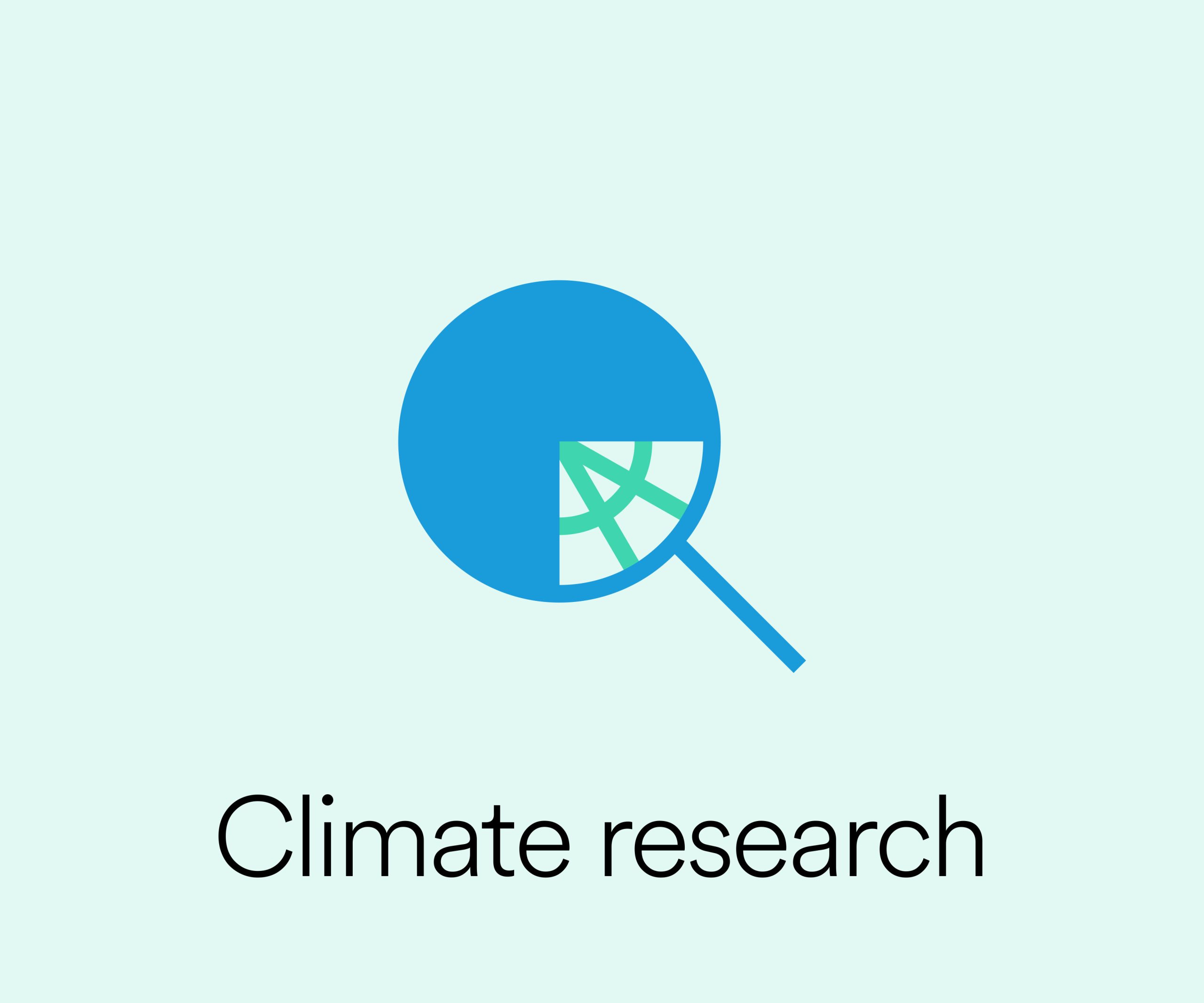 Research
ResearchUniversities are conducting research to better understand and address the impacts of climate change.
Read member examples
Research
University of Calgary
The University of Calgary is combining the tools of chemistry, geology, engineering and law to achieve climate change solutions. For example, the Calgary Climate Solutions team uses PEACH technology to manipulate seawater alkalinity through electrochemistry and capture CO2 on a global scale. The university’s AVECS project focussed on providing new routes to geological carbon storage in reservoirs unsuitable for conventional supercritical CO2 storage, targeting carbon contained in organic matter. In addition, researchers from the University of Calgary participate in Ocean Networks Canada’s international team of researchers working to advancing technology to draw CO2 from the air and inject it below the seafloor into ocean basalt.York University
York University’s Net Zero 2049 initiative is at the forefront of showcasing sustainable solutions to address climate change. With a firm commitment to achieving net-zero emissions by 2049 or earlier, the university is implementing an Energy Management Plan, fostering partnerships with stakeholders and promoting experiential education for community engagement. Through the measurement of greenhouse gas emissions, implementation of energy-saving measures and raising climate awareness, York University is driving positive change towards a sustainable future. Its innovative approach and collaborative efforts will make a lasting impact in the fight against climate change.The University of British Columbia
The Centre for Climate Justice at the University of British Columbia tackles climate breakdown, systemic racism and gender-based violence. They conduct interdisciplinary research addressing multiple crises, promoting redistribution and reparation in the post-fossil fuel age. The Centre collaborates with movements, communities and policymakers to enhance climate justice expertise, prioritize inclusivity and align actions with Indigenous laws and self-determination. Their activities include research support, knowledge sharing, public engagement and mentorship, focusing on marginalized communities and community expertise. The Centre strives for social, political and economic changes through collaborative research and community engagement, while respecting Indigenous Peoples and promoting non-extractive research practices.University of Victoria
A team of engineers from the University of Victoria are working on a first of its kind renewable energy microgrid incorporating a wave energy device for a remote coastal community on Kootka Island, a National Historic Site and traditional home of the Mowachaht/Muchalaht First Nation (MMFN). This cutting–edge project is supporting the Nation to achieve their long-held dream of re-occupying Yuquot after being forcibly relocated decades ago. This project is community-driven, as the Nation is highly motivated to pursue clean energy solutions that improve quality of life, facilitate economic development and support self-determination.Université du Québec à Trois Rivières (UQTR)
The Université du Québec à Trois-Rivières’ Hydrogen Research Institute (HRI) conducts research on tools to support hydrogen storage, production and usage technologies. The UQTR is assisting in the establishment of Canadian hydrogen hubs and supply chains in order to decrease emissions from transportation, including trucking and maritime transportation. Putting these mechanisms in place will spur economic growth and job creation while reducing pollution and creating climate adaptation metrics.Université du Québec à Montréal, Université de Laval and the University of Waterloo
Researchers in the Mathematics Department of UQAM, the Université Laval and the University of Waterloo are partnering with the Insurance Bureau of Canada to examine the costs of future flooding and how public policies can contribute to improving Canada’s resilience to the impacts of climate change. This research will help inform a national flood insurance program.Source (French)
Concordia University
Concordia University’s Next-Generation Cities Institute is a zero-carbon building accelerator created to provide developers with the tools and resources required to make the entire building industry more sustainable. The accelerator’s goal is to multiply low-emissions, climate-resilient building and renovation projects in Montreal’s commercial and residential areas by leveraging the combined expertise of members from various industries. The accelerator also functions as a forum for Concordia’s research, enabling student innovators to connect with developers.Queen’s University
Queen’s University researchers have launched a project in collaboration with the City of Kingston and industry partners to reduce the environmental footprint of concrete, which currently accounts for a significant percentage of global carbon dioxide emissions. While current research is happening in the Queen’s civil engineering labs, it will move into the real world with help from the city. An actual structure with low environmental impact will be designed and built at the Kingston Fire and Rescue Training Centre. The structure will eventually serve as a living lab to educate students about low-carbon structures.Athabasca University
Athabasca University shares how researchers and graduate students are advancing knowledge and creating solutions to help create sustainable communities and, as a result, change lives in a new video series called Research with Reach. The series covers a range of topics including building sustainable businesses, designing sustainable communities and protecting food, water and ecosystems through research and technology.Université du Québec
In fall 2021, the Université du Québec launched Grande initiative réseau – Forêt (GIR Forêt). This major initiative promotes and facilitates collaborative work in forest science by pooling the expertise and resources of the ten institutions in its university network. With this initiative, it will contribute to sustainable forest management by developing knowledge and innovative solutions to mitigate the impacts of climate change. GIR Forêt brings together over 90 researchers and 500 graduate students. It publishes over 200 scientific articles a year.Source (French)
Dalhousie University
Dalhousie University is world-renowned for its ocean research which takes place across disciplines and extends to the region and beyond, contributing to Nova Scotia’s blue economy and supporting global ocean sustainability. It is home to the Aquatron, Canada’s largest university aquatic research facility, and the Ocean Tracking Network which has deployed over 2,000 acoustic tracking stations globally to follow the movements of more than 300 keystone and commercially and culturally valuable aquatic species in the context of changing ocean and freshwater environments.OCAD University
OCAD University has established the Global Centre for Climate Action (GCCA) research centre to explore new approaches to sustainability, climate justice and decolonization through creativity, sustainable design and artistic practice. The research centre is dedicated to supporting community artists, designers and scholars working on climate initiatives, as well as cultivating a worldwide network for creative climate justice. The GCCA collaborates with Indigenous and marginalized communities to advance regenerative relationships between people, land and Indigenous Knowledge of sustainability. It uses a decolonial lens to comprehend social justice frameworks that emphasize the origins of environmental crises and their consequences for marginalized communities. The GCCA is currently working on three exhibitions that will take place in the spring, summer and fall of 2024 and highlight intergenerational and interdisciplinary practices in art, design and research that highlight climate action.University of Guelph
The University of Guelph researchers are establishing temporary weather stations on a remote tree line in the Rocky Mountains to better understand how forest and non-forest regions will interact as the climate changes. This method will improve knowledge of how climate change will affect forest and non-forest interactions and will allow for better prediction of climate change effects across Canada. The information collected will be used to compare to the closest Environment Canada weather stations to show the variation and similarities over larger distances. Parks Canada will also use the data to better anticipate how climate change will impact species distributions, enabling them to fulfill their mandate of conserving landscapes that are representative of Canada. -
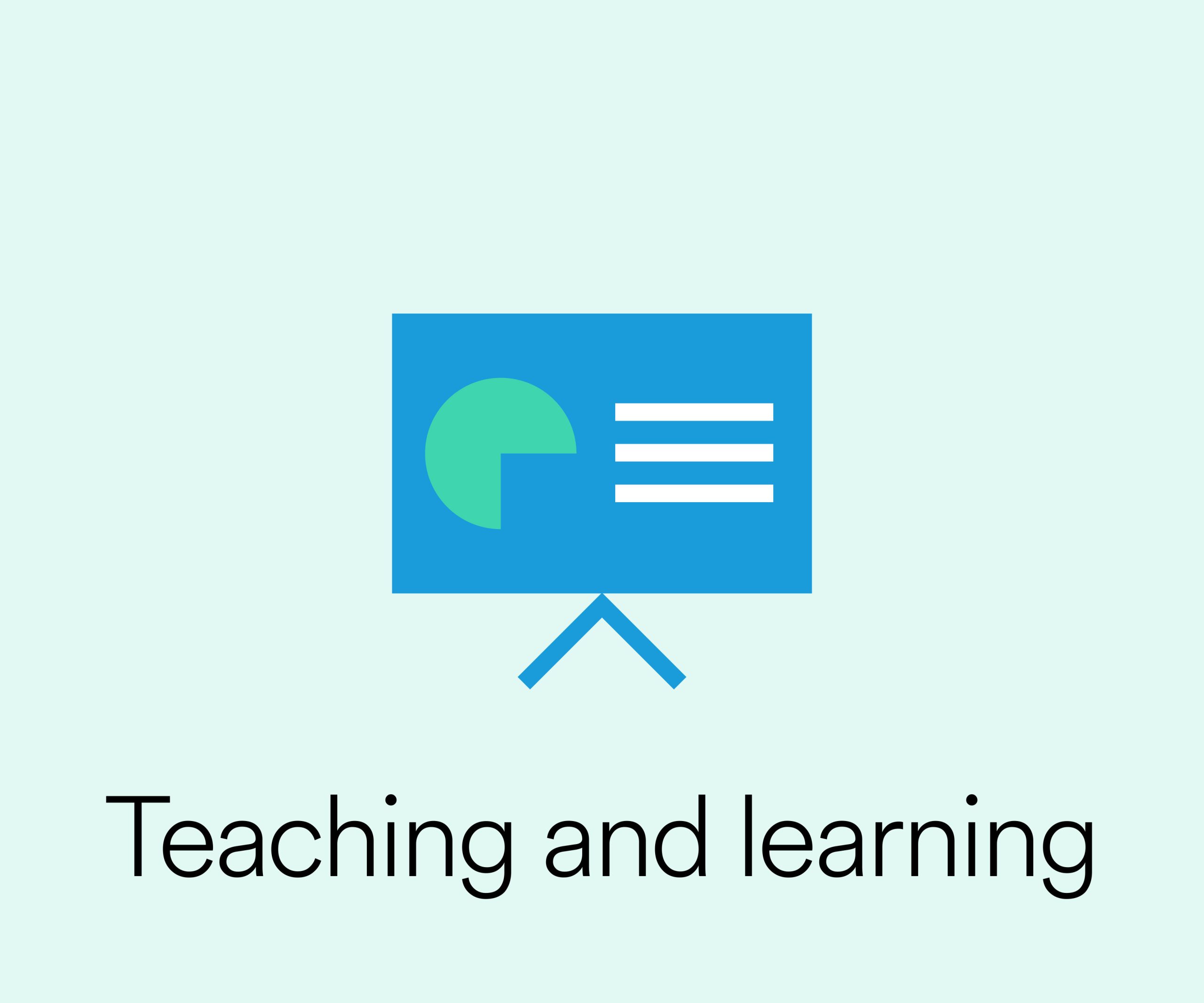 Teaching and learning
Teaching and learningUniversities are working to equip students with the skills to succeed in a green economy.
Read member examples
Teaching and learning
The University of Winnipeg
The University of Winnipeg’s environmental studies program, established in 1970, is one of Canada’s pioneering interdisciplinary undergraduate programs. With seven degree options, the department takes an integrated and practical approach to addressing human-environmental interactions and resource challenges. Their mission encompasses educating future environmental leaders, creating knowledge and engaging with communities at local and global levels.The University of Saskatchewan
The University of Saskatchewan offers a graduate certificate in climate change vulnerability assessment and adaptation action. This program aims to provide professionals with the knowledge and skills to understand the relationships between climate science, vulnerability assessments, adaptation development and management applications. The graduates of this program will be equipped to support government agencies, private companies and community planners in developing specific adaptation plans to address climate change.Acadia University
The Acadia Community Farm, established in 2008 by Acadia students, has grown into a half-acre educational garden hosting multiple campus and community garden plots. Students and volunteers play a significant role in managing and maintaining the farm, which provides organic produce to the the university’s dining hall and local food bank. The farm serves as a teaching resource, offering workshops on permaculture, organic gardening and seed saving, and supports field research in various Acadia University courses. Additionally, it acts as the town of Wolfville’s community garden, offering free plots to community members in exchange for volunteer time. The farm aligns with the United Nations Sustainable Development Goal #2 Zero Hunger and operates based on core values of education, accessibility, inclusivity, sustainability and community connection.University of New Brunswick
The University of New Brunswick is the first university in Canada to mandate climate education in the arts. It is piloting a first-year arts course on climate change that will address topics like international treaties, climate change in the media and humanitarian crises. All first-year arts students in Fredericton will be required to take the climate change course.McGill University
McGill University created a new module to ensure sustainability education is available to all McGill students. The self-paced module, called Creating a Brighter Future: Sustainability at McGill, introduces the concept of sustainability and provides resources and information on ways to get involved on campus. Students were regularly invited to provide feedback on and participate in the design of the module. Because many programs at the university have strict required courses, free online opportunities such as this can help make different types of education accessible for all students.University of Prince Edward Island
At the University of Prince Edward Island, experiential learning has been a core aspect of the environmental studies program since 2011. One way that experiential learning is incorporated into the program is through a required environmental studies internship course for third-year bachelor of environmental studies students. Integral to the course is a 30-hour volunteer internship where students engage in “hands-on” learning in the environmental field with community partners, such as federal, provincial and municipal governments; local non-governmental organizations; and the private sector. These volunteer internship placements provide an opportunity for students to gain a better understanding of what it might be like to work in the environmental field and, in some cases, provide a steppingstone to a summer job or a future career.Emily Carr University of Art + Design
Emily Carr University of Art + Design has a long history of student and community-led sustainability and environmental efforts. These initiatives include the Hey You! Let’s Talk About Waste – a student-led small paper zines campaign to make people think about how their habits affect the environment, the 2020 summer course Nature Speaking in which students produced a series of podcasts documenting pandemic-era resiliency in the local environment and Border Free Bees which works to raise awareness of the plight of wild pollinators, empower communities to actively engage in solutions for habitat loss and transform under-utilized urban sites into aesthetically pleasing and scientifically viable pollinator pastures.Carleton University
Across the university, Carleton faculty members are teaching and studying sustainability through courses, programs and research projects. As a community they are committed to taking steps in order to ensure all their students gain the knowledge and understanding to become sustainable global citizens. Carleton University has developed a strategic action plan to evaluate sustainability-related curriculum activities and ensure that programs are informed and aligned with SDG goal 4 pathways (quality education).First Nations University of Canada
The First Nations University of Canada offers undergraduate programs and courses in Indigenous Environmental Sciences, including a certificate in Indigenous Environmental Management. The courses combine “textbook science” with teachings from traditional Indigenous Elders and other Indigenous Knowledge keepers to better understand Indigenous Science, experiential learning and oral traditions. Programs are offered in collaboration with the University of Regina and Saskatchewan Polytechnic and attract to Indigenous and non-Indigenous students who want to expand their knowledge of Indigenous environmental sciences.The King’s University College
The King’s University College introduced environment and sustainability courses across eight different departments such as geography, economics and sociology. The university took the initiatives to included sustainability related courses to protect and sustain their planet, campus and enhance student’s environmental knowledge by implementing a comprehensive environmental teaching and learning curriculum.Université de Montréal
The Université de Montréal offers a specialized graduate program in environmental studies and sustainable development for students with a strong interest in sustainable education. It has been successfully integrated over the past two years. The program prepares graduate students to integrate sustainable development studies into their teaching and research. The Université de Montréal strives to expand its coverage of sustainability topics, enrich the study of past challenges and opportunities and develop into a hub of sustainability research and education.Source (French)
-
 Partnerships
PartnershipsUniversities are collaborating with local, national and international partners to tackle the impacts of climate change.
Read member examples
Partnerships
École de technologie supérieure
ÉTS in Montréal became carbon neutral in 2021, surpassing its target date of 2030. To achieve carbon neutrality, ÉTS Montréal follows three pillars: measuring GHG emissions, reducing energy consumption through efficiency projects and offset emissions. The offsetting component involves purchasing carbon credits that meet the highest quality standards in the world (Gold Standard certification) and establishing the Fonds de recherche ÉTS sur les changements climatiques (FRECC), a research fund that supports climate change-related projects. Additionally, ÉTS has partnered with Planetair to create the Planetair+ÉTS product, which allows customers purchasing carbon offsets to contribute to the FRECC. Through their commitment to innovation and leadership in the fight against climate change, ÉTS aims to make a meaningful and sustainable impact.Simon Fraser University
Simon Fraser University’s Action on Climate Team is a state-of-the-art research-to-practice hub for climate change and sustainability solutions. Between 2018 and 2021, the Team partnered with 10 cities as part of its Integrated Climate Action for B.C. Communities Initiative research project which offered municipalities an equitable, a low-carbon resilient approach to city planning and tests its efficacy. The team helped municipalities to embed decisions and strategies that look for ways to reduce climate risk and emissions and advance sustainability. This resulted in the development of a handbook that formalizes the low-carbon resilience approach, and it has now become a recognized best practice in city planning and been adopted by higher education institutions in North America.University of Calgary
University of Calgary’s Energy Transition Centre (ETC) is a partnership between the University, Innovate Calgary, and Avatar Innovations. The ETC focuses on collaboration and integration between academia and industry to accelerate the development of energy technologies and to nurture, improve and steer emerging energy transition technologies into profitable startup businesses. This transformational approach not only leads to new energy solutions but also the creation of spinout startup companies, new jobs and economic diversification.Wilfrid Laurier University
Wilfrid Laurier University provides students with the chance to acquire valuable real-life learning experiences while providing a service to local community organizations through sustainability-focused community service-learning experiences. Students can create energy action plans based on areas of sustainability in the community service-learning courses, which include a merged environmental, psychology, and action course. In addition, the community service-learning approach includes a research method course that investigates the communication channels through which students acquire knowledge about sustainability.

